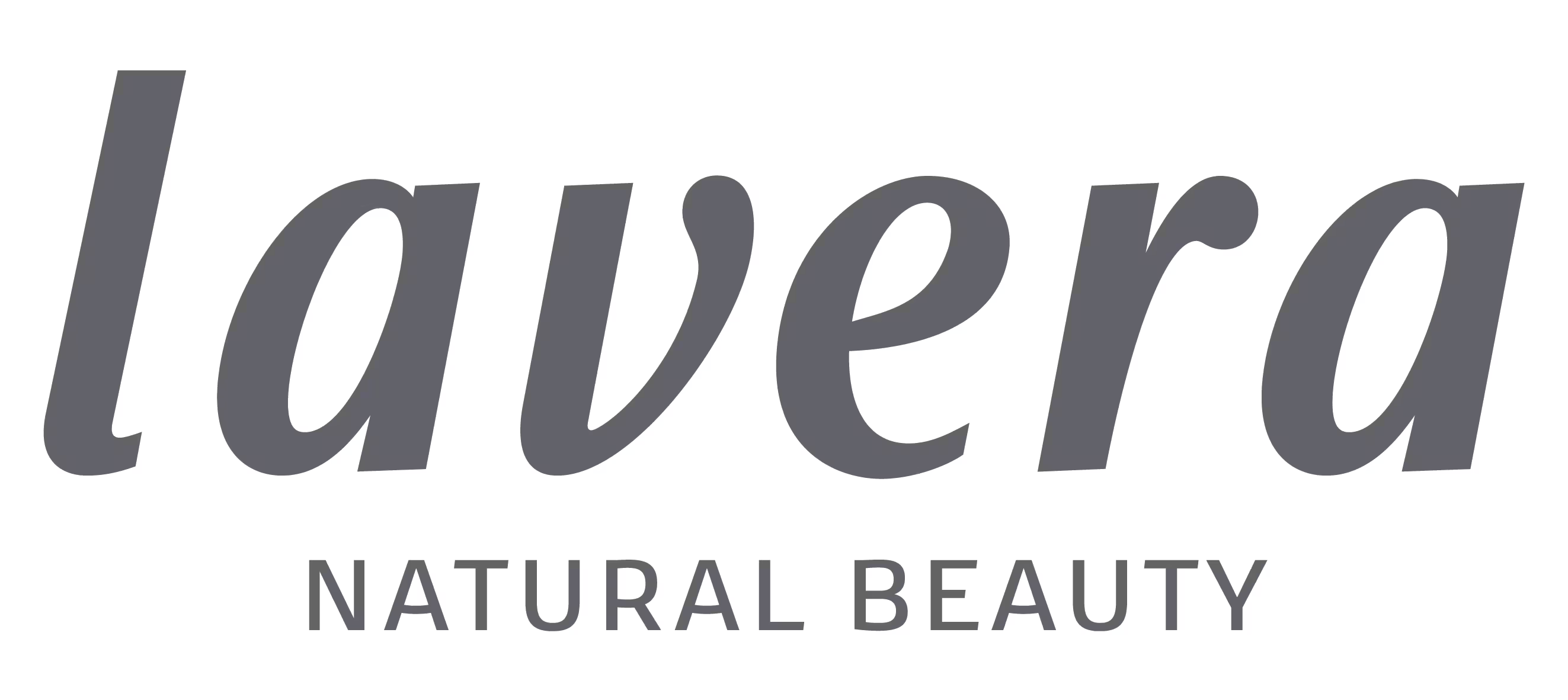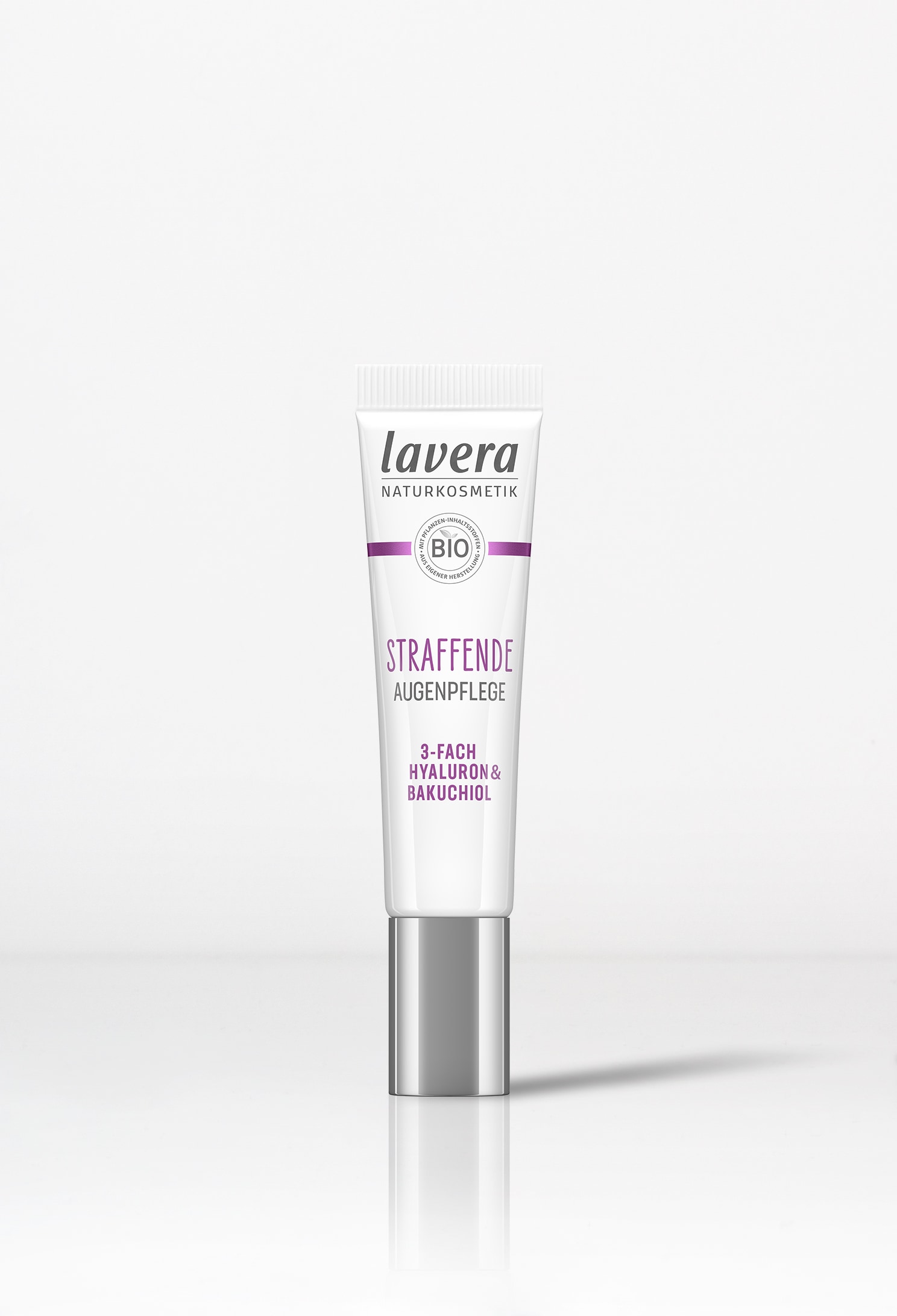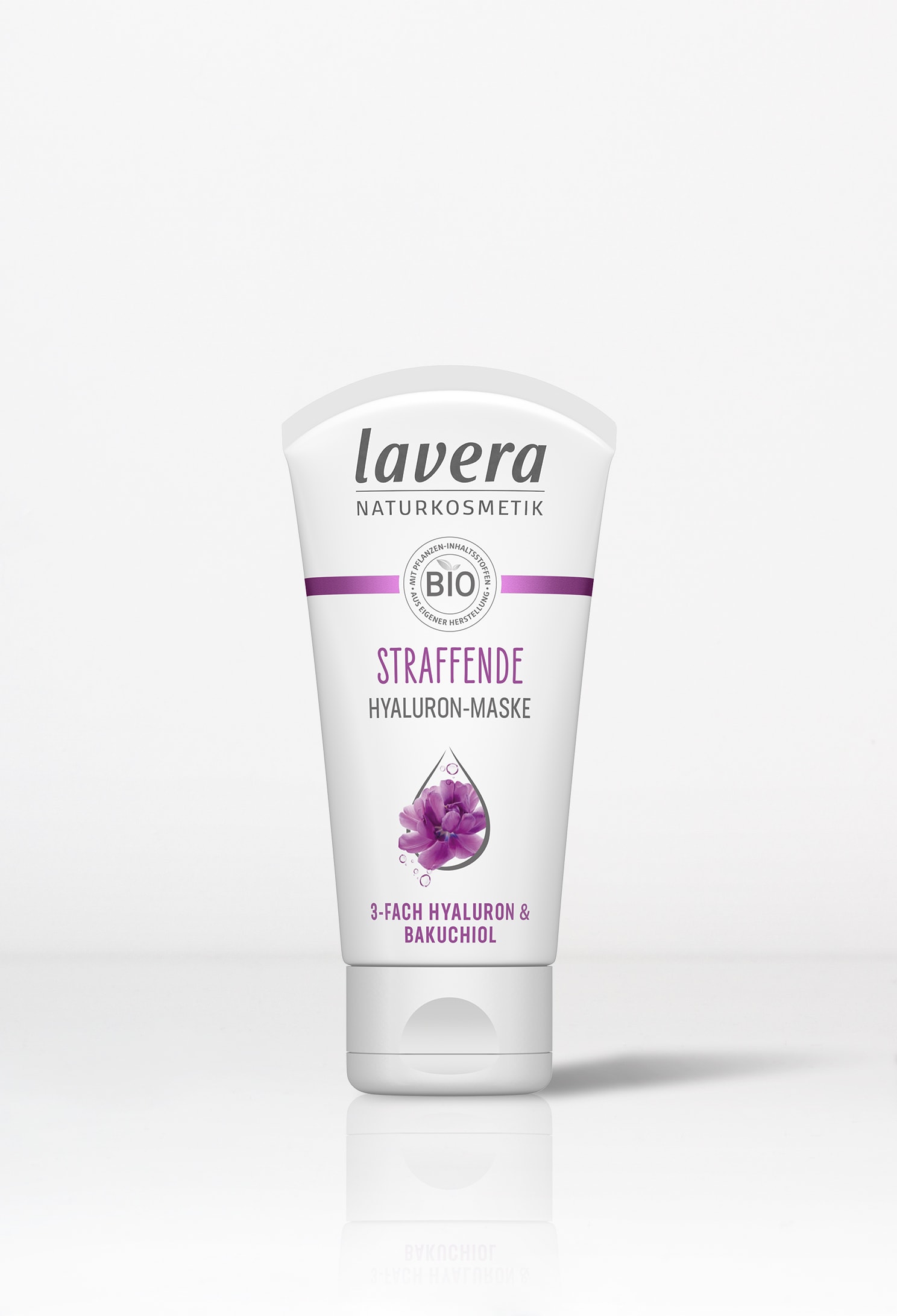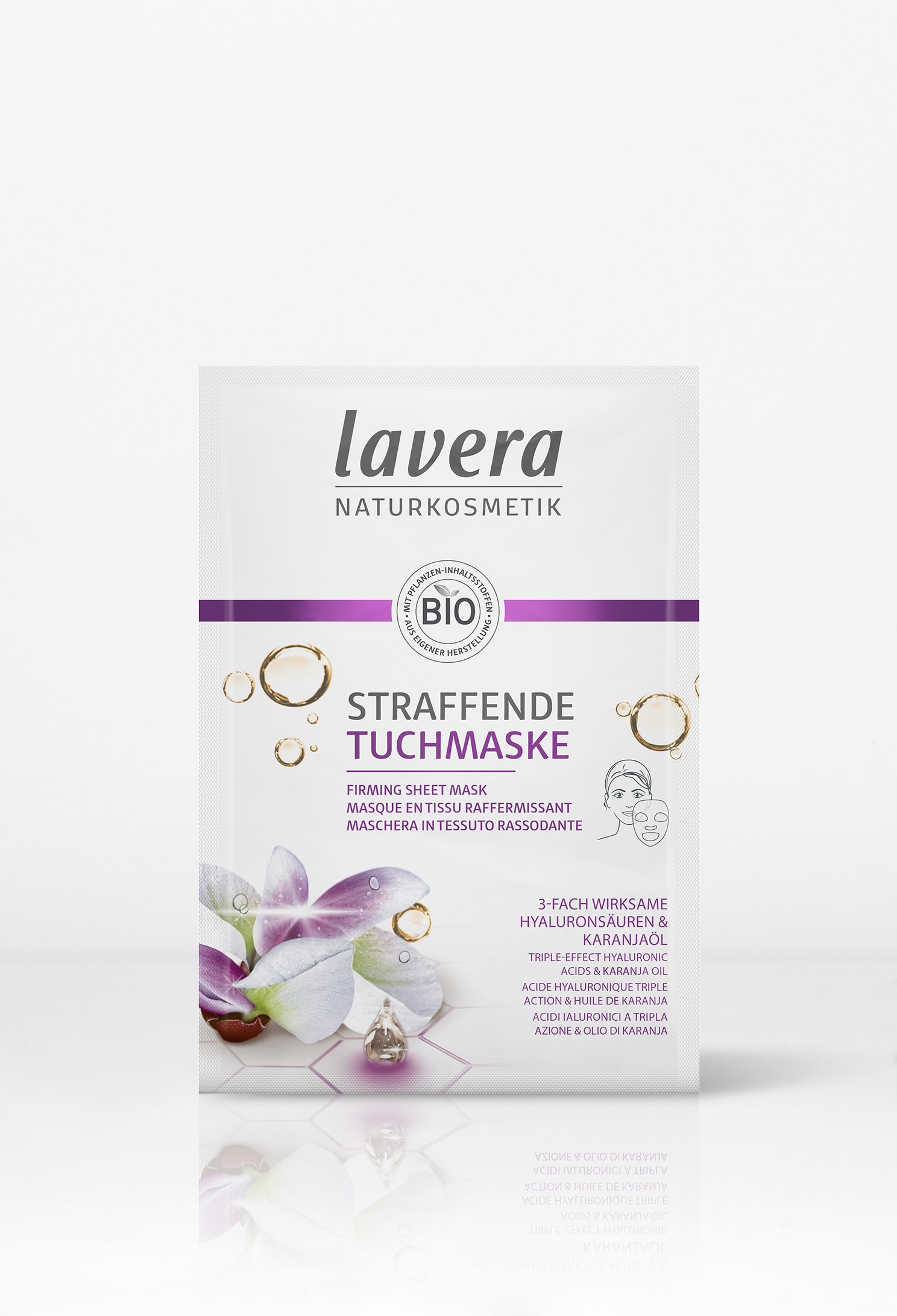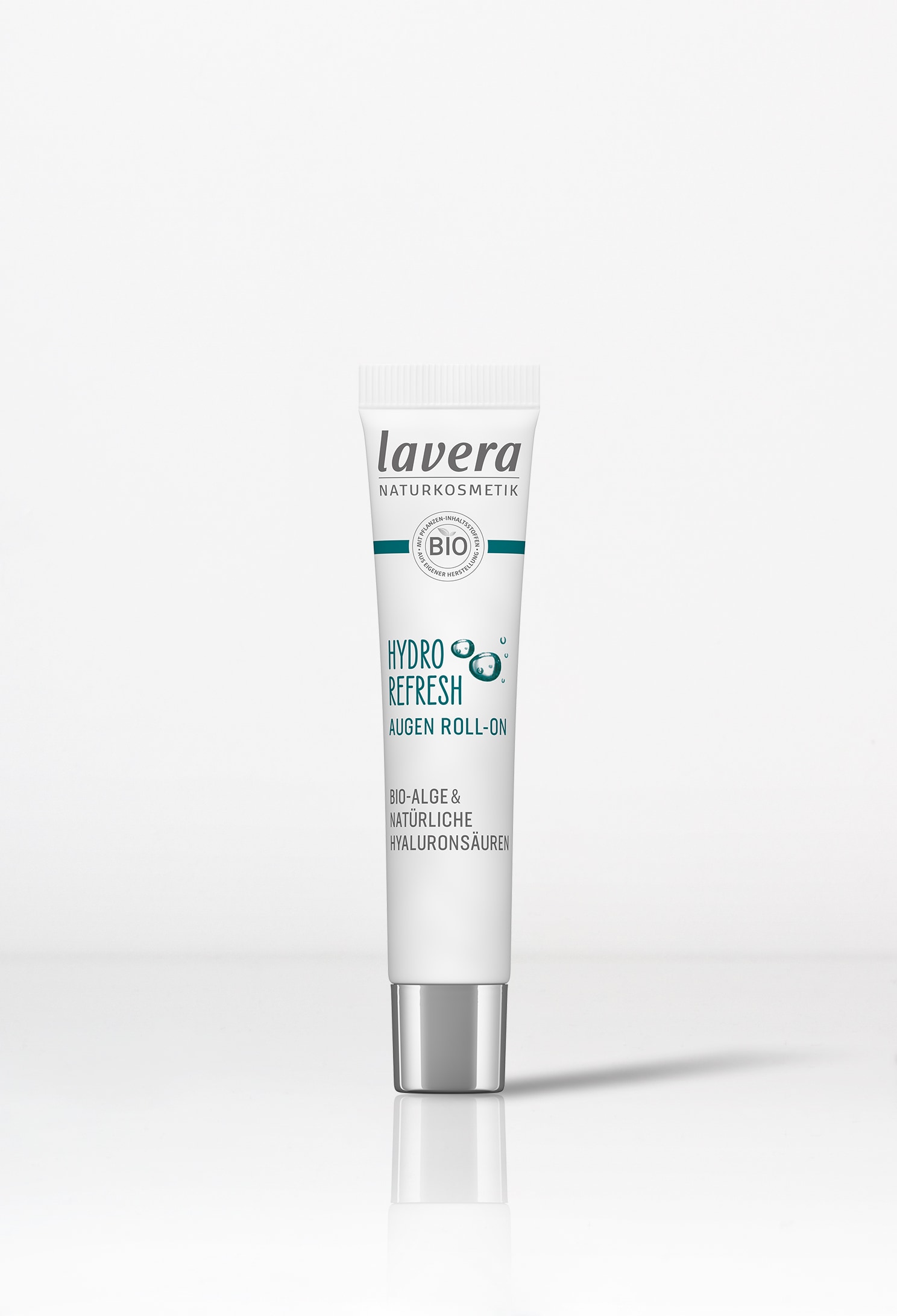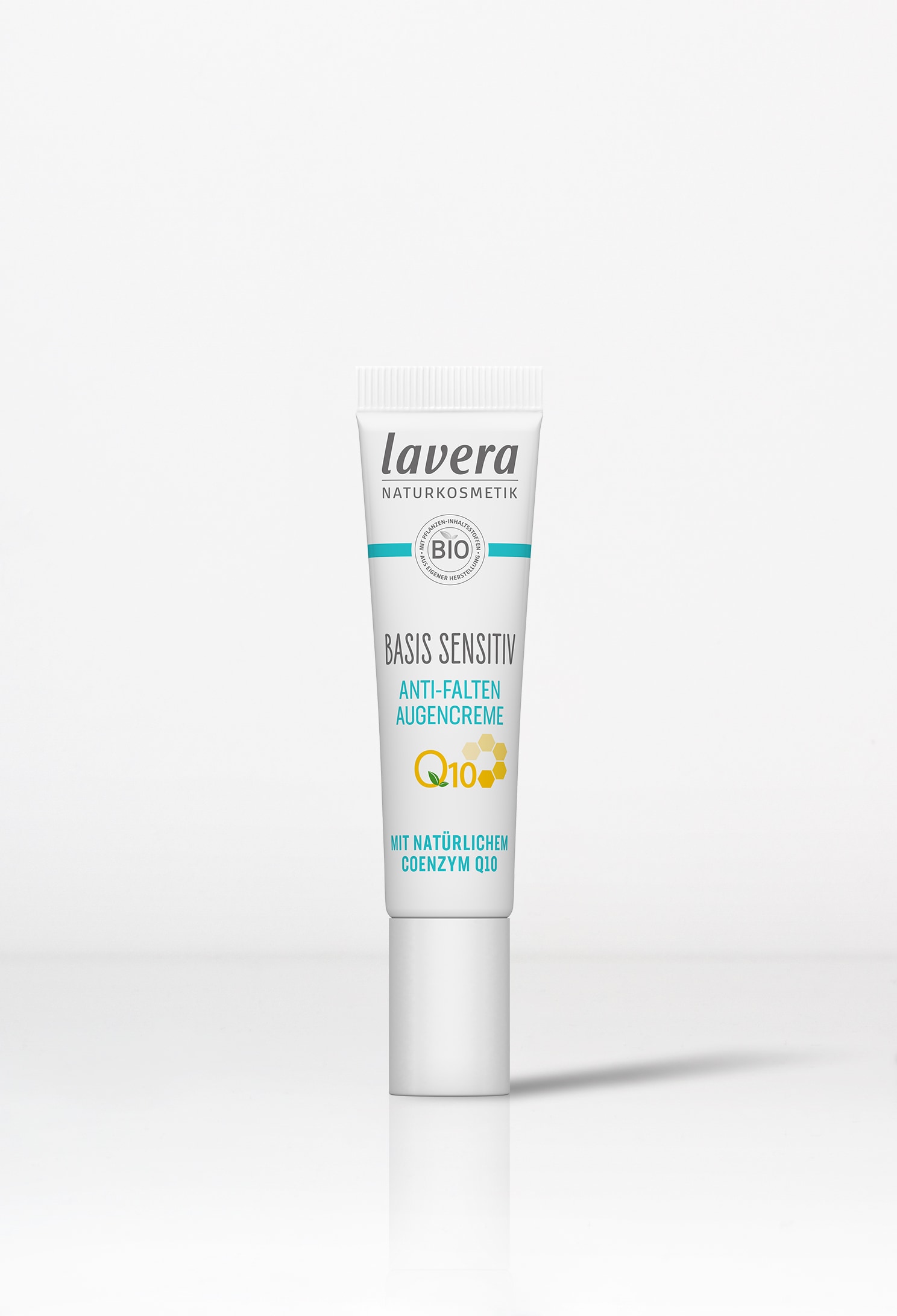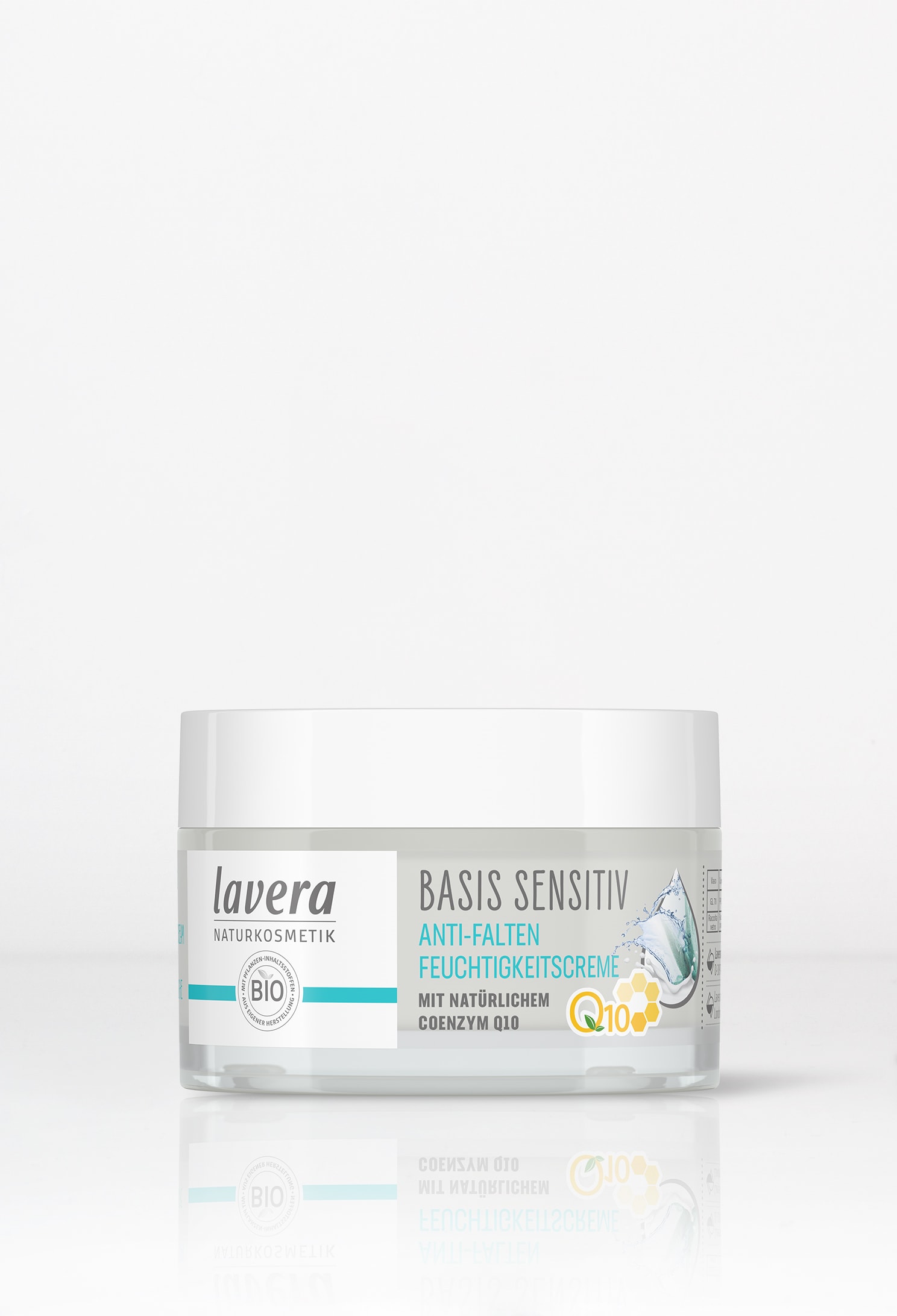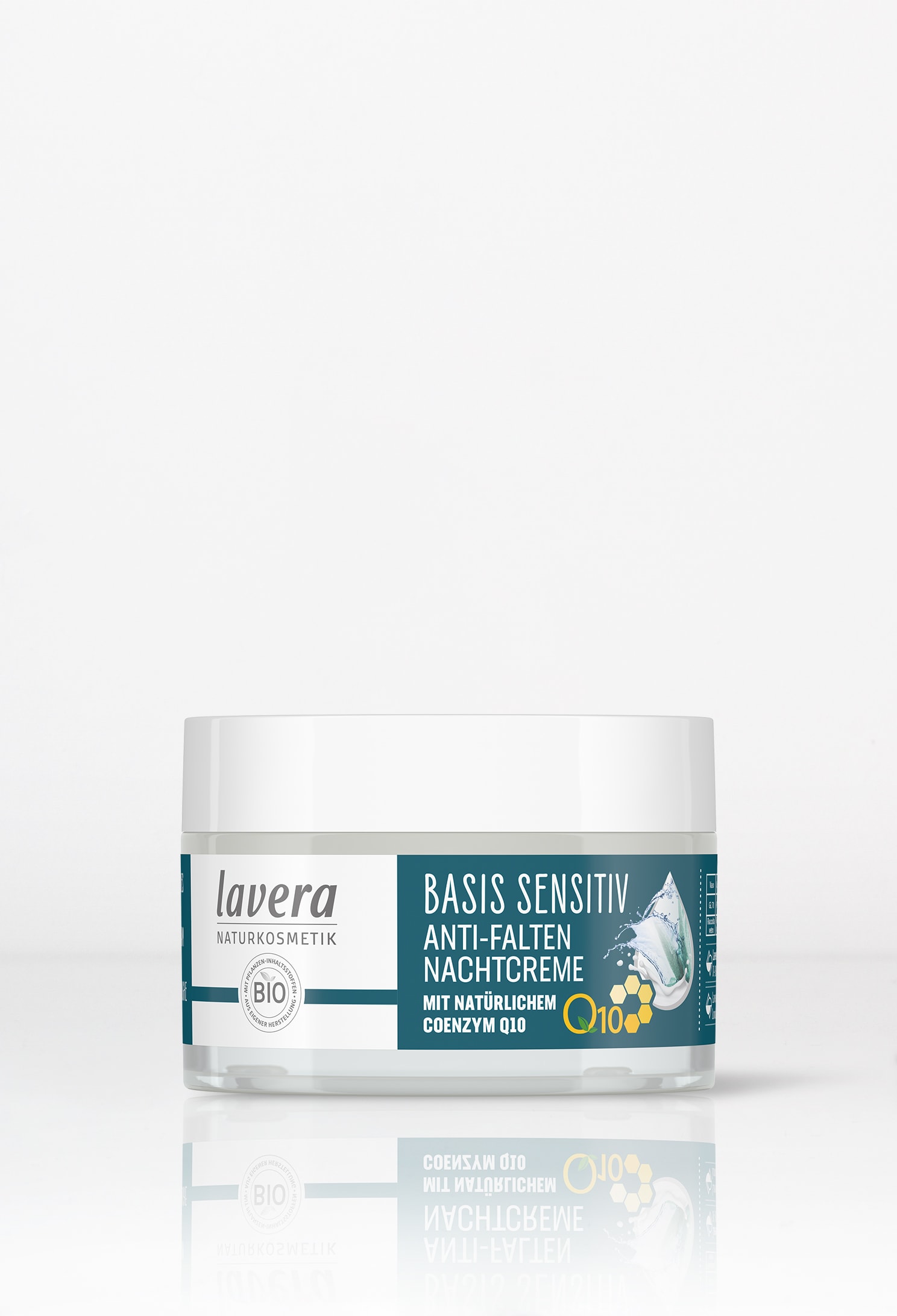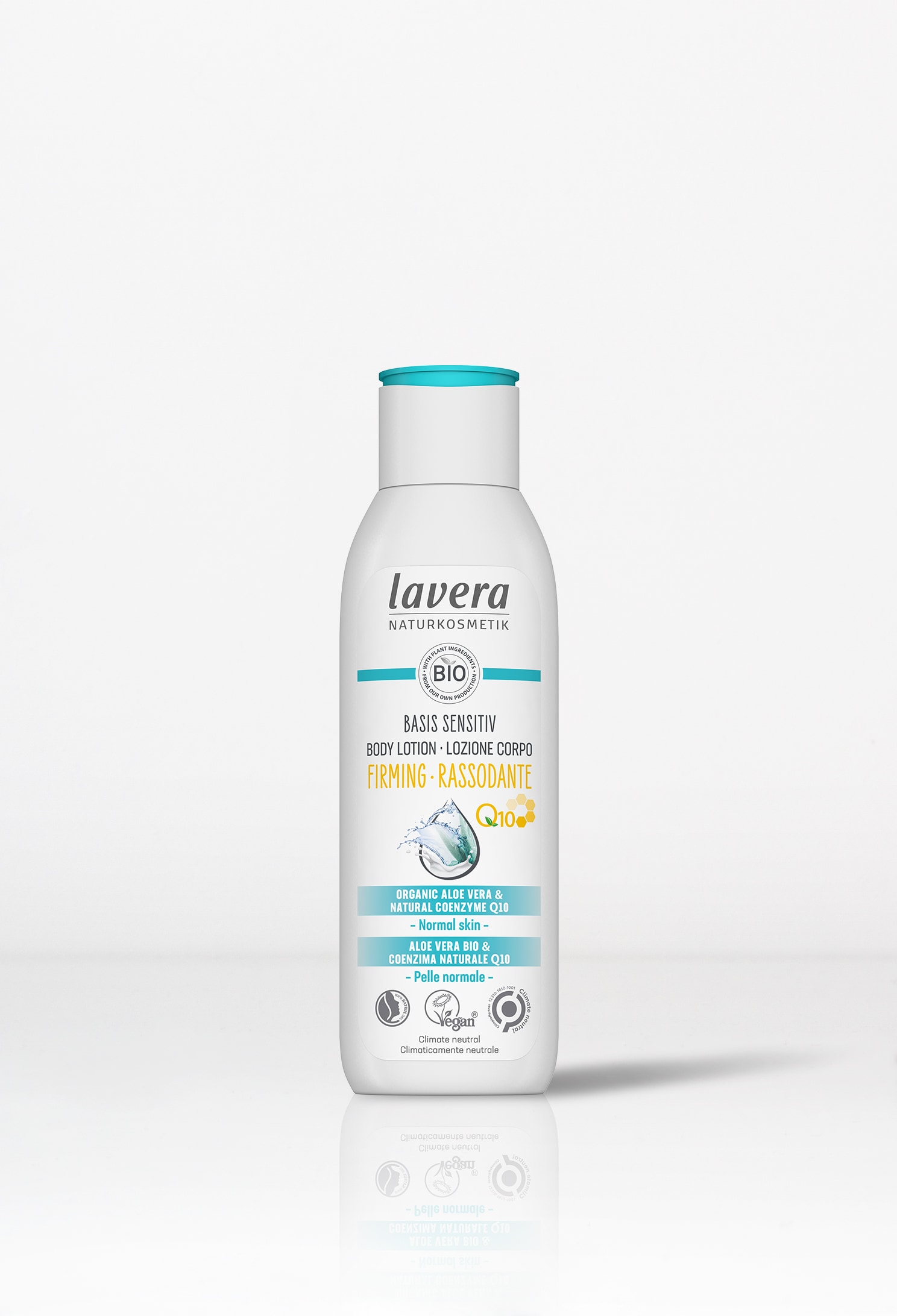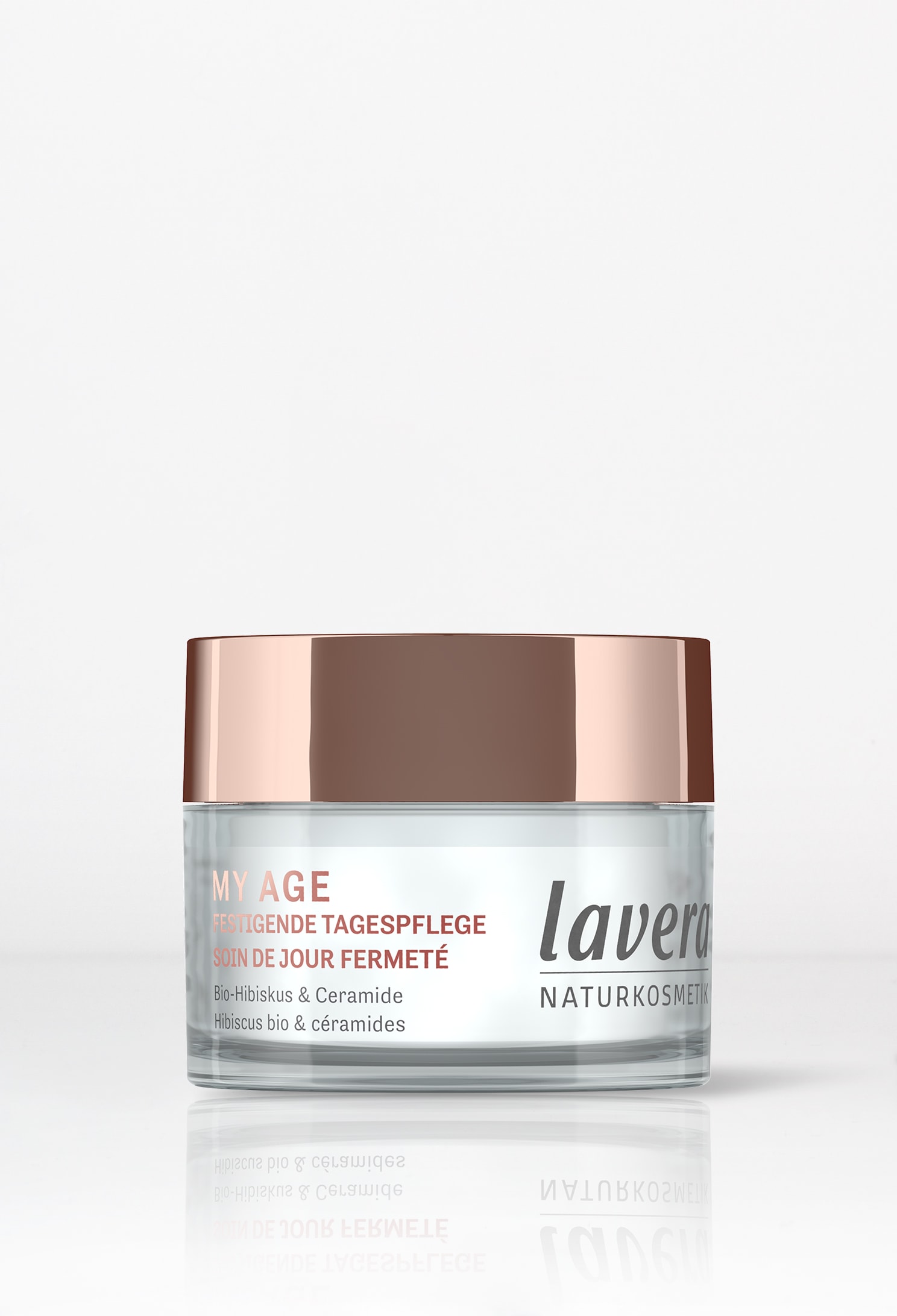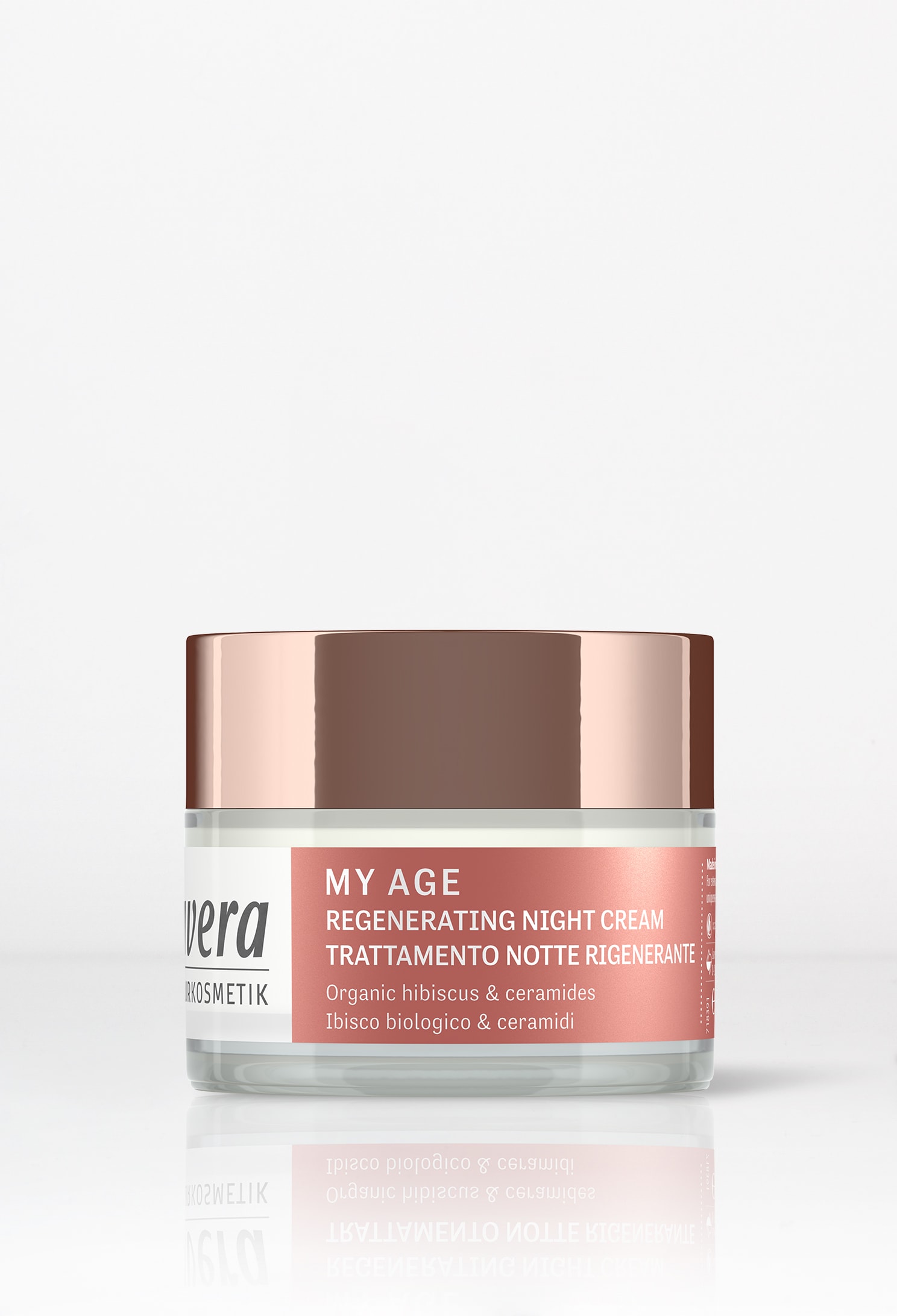Beautiful skin and personal well-being are important to all of us, no matter how old we are. Good skincare with effective anti-aging ingredients can prevent the first signs of skin aging. At lavera Natural Beauty, we rely on the power of natural ingredients for anti-aging, which care for your skin and protect it as much as possible from natural aging. In this article, we highlight the active ingredients Coenzyme Q10, Hyaluronic Acid, and Ceramides, and explain their specific benefits for your skin.
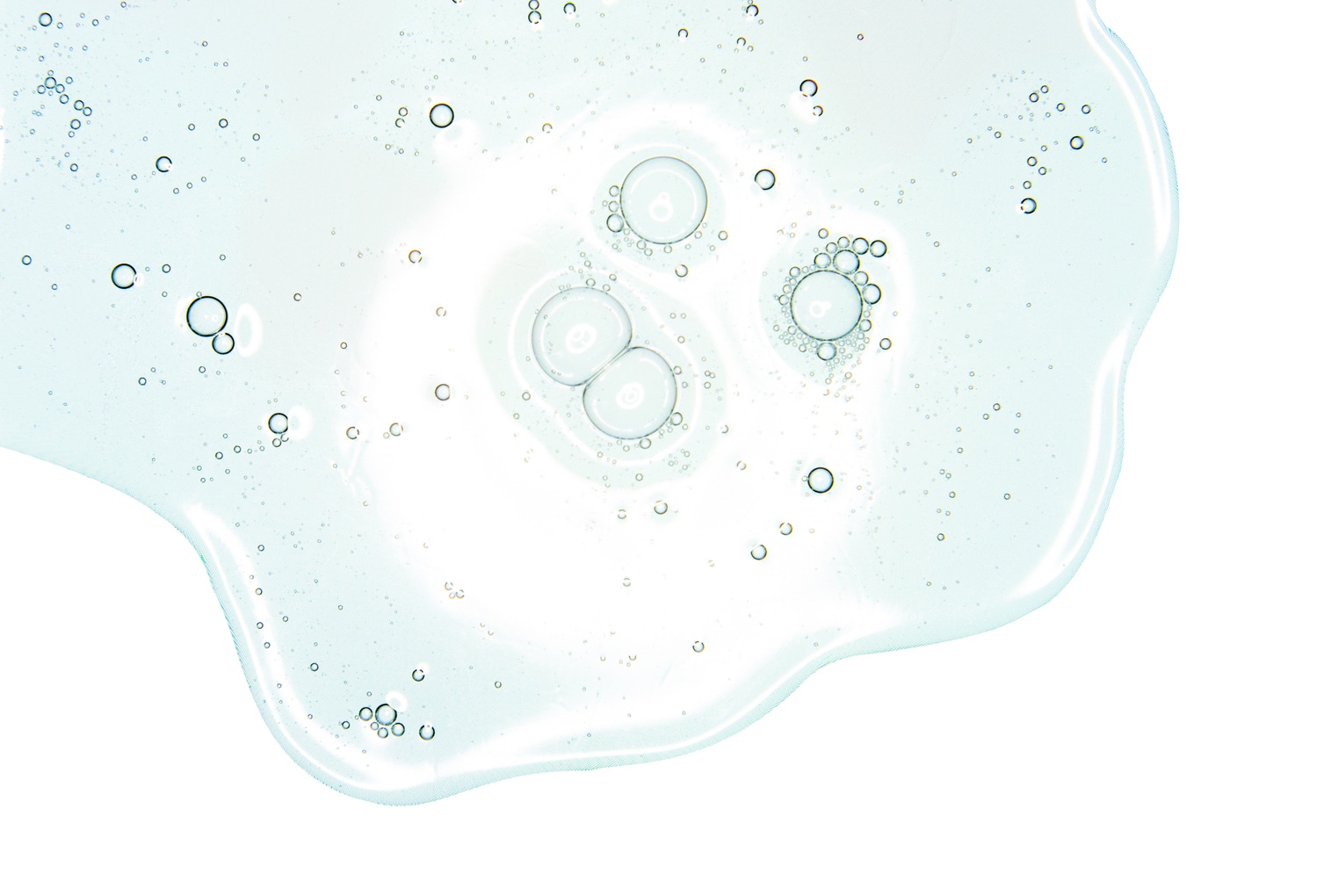
What is Hyaluronic Acid?
If you're wondering, "What is hyaluronic acid good for?" you're in the right place. Imagine this: 1 gram of hyaluronic acid can hold up to 6 liters of water! Because hyaluronic acid can bind such large amounts of water and store it in our connective tissue, it helps to give the skin a plump and smooth appearance. Hyaluronic acid also strengthens the skin barrier. It improves skin elasticity and reduces the appearance of fine lines and wrinkles.
Hyaluronic Acid: Size Matters
Hyaluronic acid comes in various sizes, consisting of chains of different lengths of disaccharides. These chains can range from 250 to 50,000 disaccharide units. The weight, measured in kilodaltons (kDA), varies accordingly. The length of the chains influences the properties of hyaluronic acid. The smaller the hyaluronic acid chains, the deeper they can penetrate the skin. In the INCI (International Nomenclature of Cosmetic Ingredients), they are referred to as Sodium Hyaluronate, regardless of their size.
Some products in the lavera range contain up to three different types of hyaluronic acid of varying sizes: for example, our Hydro Refresh Cream Gel, the Hydro Refresh Eye Roll-On, or our Firming Face Care. These different sizes (low, medium, and high molecular weight) allow the various layers of the skin to be moisturized.
In cosmetics, hyaluronic acid is primarily used in facial creams and other skincare products to treat wrinkles. Hyaluronic acid is particularly effective for fine and superficial wrinkles, such as crow's feet. When applied to the skin, a cream with hyaluronic acid can reduce the depth and number of wrinkles and improve skin elasticity.
Additionally, a cream with hyaluronic acid can significantly enhance the skin's moisture levels. It is also noteworthy that hyaluronic acid is considered very well-tolerated, making it suitable for all skin types.

Hyaluronic Acid in lavera Products
Due to its excellent hygroscopic properties (i.e., attracting and binding water), hyaluronic acid is already used in many cosmetic formulations. At lavera Natural Beauty, we utilize natural 3-fold hyaluronic acid in products such as our Firming Face Care, Hydro Refresh Cream Gel, and Hydro Refresh Eye Roll-On. "3-fold" means that these products contain hyaluronic acid variants of three different sizes, which can moisturize both the uppermost and middle layers of the skin.
Together with Bakuchiol, the gentler and plant-based alternative to retinol, this special formulation ensures a firmer, fresher, and more even skin appearance.
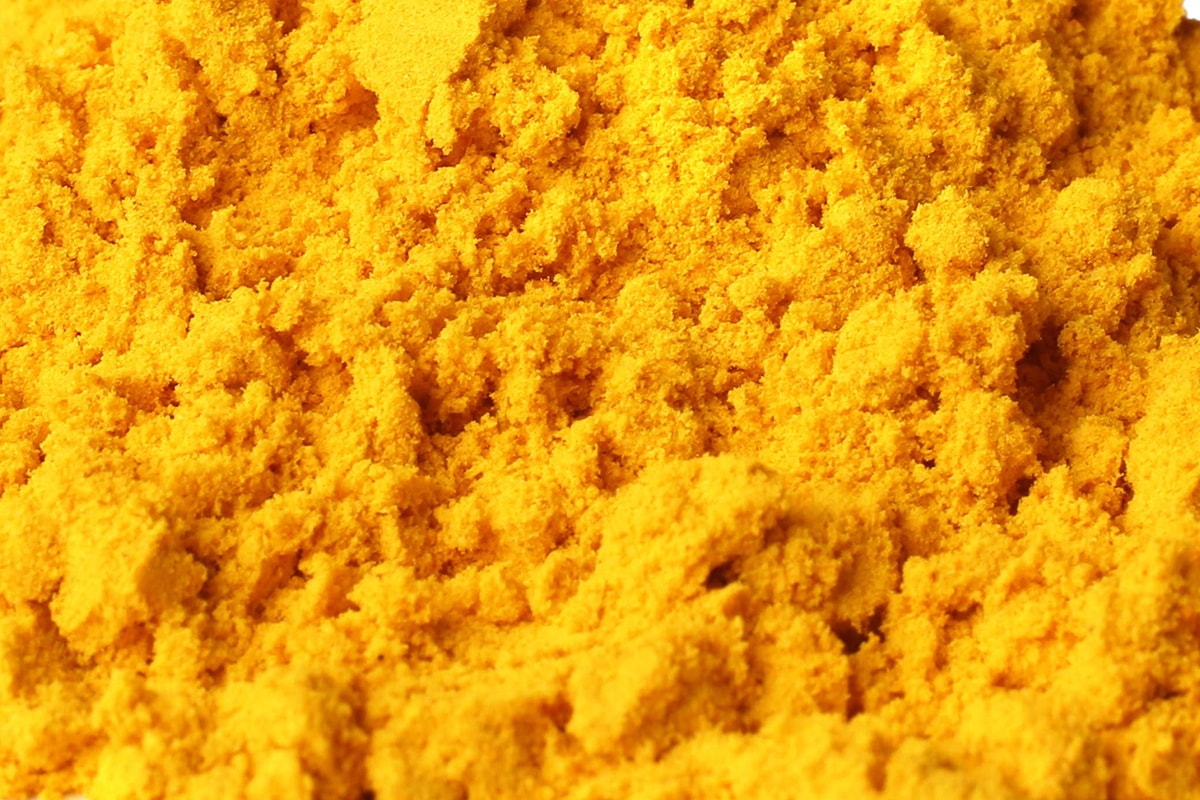
What is Coenzyme Q10 and How Does It Work?

Q10 in lavera Products
Our vegan basis sensitiv care series with Q10 tilizes the antioxidant and energizing properties of Q10 to protect and revitalize the skin. This well-tolerated series is ideal for daily care. Thanks to its unique active ingredient composition with natural coenzyme Q10, which is obtained through natural fermentation from corn starch, it has been proven to reduce wrinkles – and all in 100% certified natural cosmetics quality, without mineral oils and without artificial fragrances, colors, and preservatives.¹
¹according to EU Cosmetics Regulation
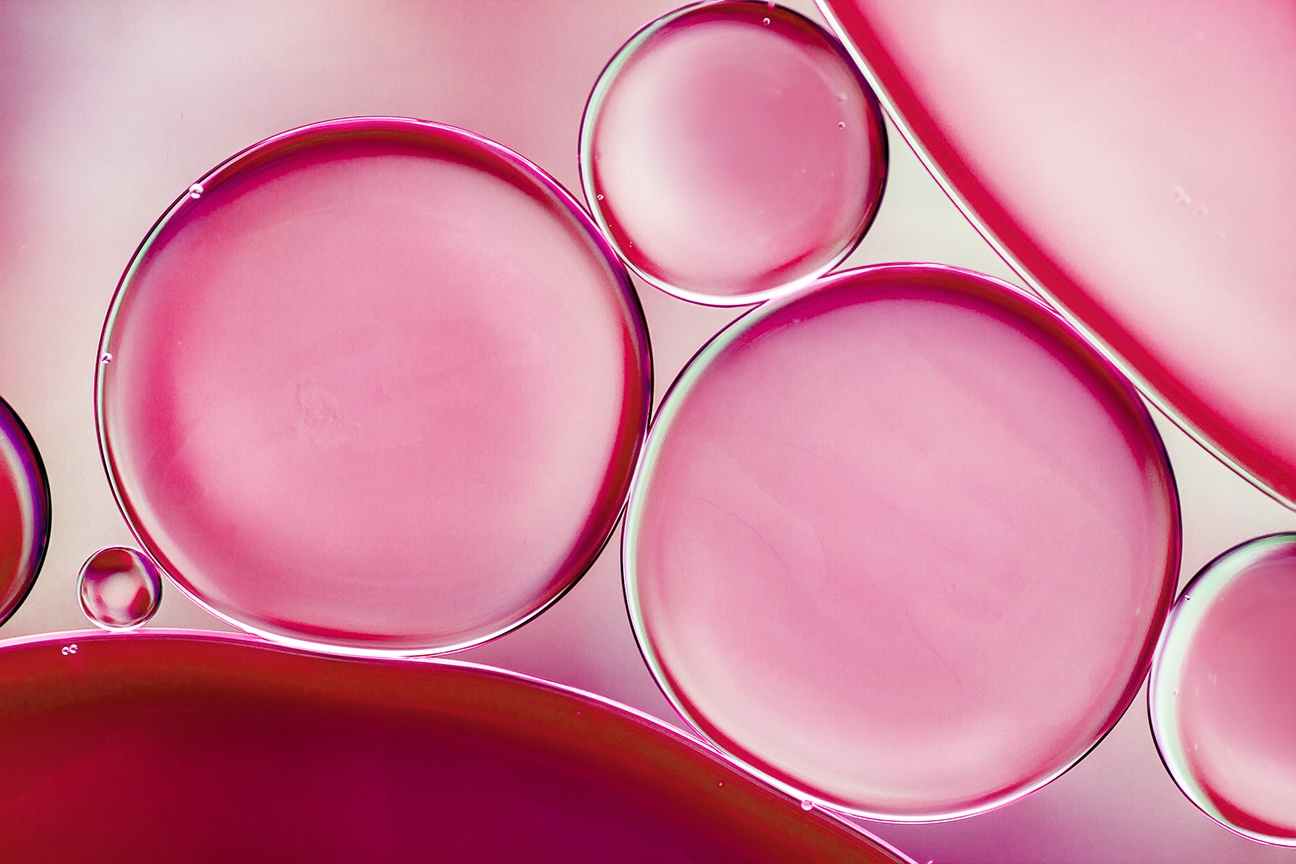
What are Ceramides?
Ceramides are lipids that naturally occur in our skin, primarily in its outermost layer, and play a crucial role in forming the skin barrier. They act like a kind of "mortar" that binds the corneocytes (horn cells) together. In this way, ceramides help protect the skin from moisture loss, strengthen the skin barrier, and can prevent irritants and harmful substances from penetrating our skin. Additionally, ceramides can reinforce the cell structure.
Ceramides: Effects on the Skin
Ceramides act in the outermost layer of the skin. If you're wondering, are ceramides important for the skin? Then we can only say, yes! Together with cholesterol and free fatty acids, ceramides form multilayered lamellar structures between the cells of our uppermost skin layer. This invisible "shield" protects our skin from moisture loss and external influences. Thus, ceramides contribute to strengthening the skin barrier, protecting the skin from moisture loss, supporting its regeneration, and improving its hydration.

Ceramides in lavera Products
You're wondering: Which cream contains ceramides? Our MY AGE care series! This care series includes plant-based ceramides that are specially formulated to strengthen the skin barrier and increase the skin's firmness and elasticity. This series is ideal for mature skin and helps to smooth wrinkles and prevent potential moisture loss.
Summary
Naturally, we have hyaluronic acid, Q10 and ceramides in our skin. However, their concentration levels can decrease with age or due to external factors such as UV radiation. By using cosmetic products that contain these valuable ingredients, we can help replenish them.
Hyaluronic acid stands out among active ingredients due to its ability to retain moisture in the skin. It positively impacts skin hydration and elasticity. A cream with hyaluronic acid can reduce the depth and number of fine lines and wrinkles (e.g., crow's feet), giving our skin a plump appearance. Hyaluronic acid is considered very well-tolerated.
How good is Q10 for the skin? Coenzyme Q10 is an antioxidant that protects against free radicals, which can lead to premature skin aging. It supports cell regeneration and protects the skin from oxidative stress, one of the main causes of premature skin aging. Additionally, it reduces wrinkles and their depth, supports the repair of skin damage, and improves skin texture and elasticity. Q10 is well-tolerated, so skin of all types and ages can benefit from a cream with Q10.
What do ceramides do? Ceramides serve as a kind of "mortar" for our skin, as they bind the corneocytes in our outermost skin layer together. They help strengthen the skin barrier, protecting the skin from moisture loss and the penetration of irritants and harmful substances. Moreover, they reinforce the cell structure, improve skin hydration, and support skin regeneration. Especially for dry and mature skin, as well as during menopause when there is a deficiency of ceramides, ceramides in cosmetics can strengthen the damaged skin barrier and reduce moisture loss. In general, ceramides are beneficial for all skin types to maintain or restore an intact skin barrier. This helps preserve skin moisture and protect your skin from dehydration lines.
lavera Natural Beauty offers a care series with each of these three powerful active ingredients. So, there is something suitable for every skincare need!
Sources
Bravo, B., Correia, P., Gonçalves Junior, J. E., Sant'Anna, B., & Kerob, D. (2022). Benefits of topical hyaluronic acid for skin quality and signs of skin aging: From literature review to clinical evidence. Dermatologic Therapy, 35(12), e15903. https://doi.org/10.1111/dth.15903
Cao, Y., Zhang, X., He, X., Wang, W., Yi, Y., & Ai, Y. (2024). Efficacy of ceramide-containing sunscreen on skin barrier. Journal of Cosmetic Dermatology, 23(2), 525-528. https://doi.org/10.1111/jocd.15977
Draelos, Z. D., Diaz, I., Namkoong, J., Wu, J., & Boyd, T. (2021). Efficacy evaluation of a topical hyaluronic acid serum in facial photoaging. Dermatologic Therapy, 11(6), 1385-1394. https://doi.org/10.1007/s13555-021-00566-0
Knott, A., Achterberg, V., Smuda, C., Mielke, H., Sperling, G., Dunckelmann, K., Vogelsang, A., Kruger, A., Schwengler, H., Behtash, M., Kristof, S., Diekmann, H., Eisenberg, T., Berroth, A., Hildebrand, J., Siegner, R., Winnefeld, M., Teuber, F., Fey, S., Mobius, J., Retzer, D., Burkhardt, T., Luttke, J., & Blatt, T. (2015). Topical treatment with coenzyme Q10-containing formulas improves skin's Q10 level and provides antioxidative effects. BioFactors, 41(6), 383-390. https://doi.org/10.1002/biof.1239
Lain, E., Agrawal, N., Ruvolo, E., Weise, J. M., & Callender, V. D. (2024). The role of coenzyme Q10 in skin aging and opportunities for topical intervention: A review. Journal of Clinical and Aesthetic Dermatology, 17(8), 50-55.
Schild, J., Kalvodová, A., Zbytovská, J., & Farwick, M. (2024). The role of ceramides in skin barrier function and the importance of their correct formulation for skincare applications. International Journal of Cosmetic Science, 46(4), 526-543. https://doi.org/10.1111/ics.12972
Spada, F., Harrison, I. P., Barnes, T. M., Tong, P. L., Shumack, S., & Greive, K. A. (2021). A daily regimen of a ceramide-dominant moisturizing cream and cleanser restores the skin permeability barrier in adults with moderate eczema: A randomized trial. Dermatologic Therapy, 34(4), e14970. https://doi.org/10.1111/dth.14970
